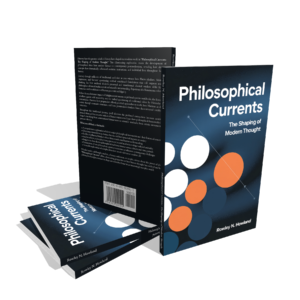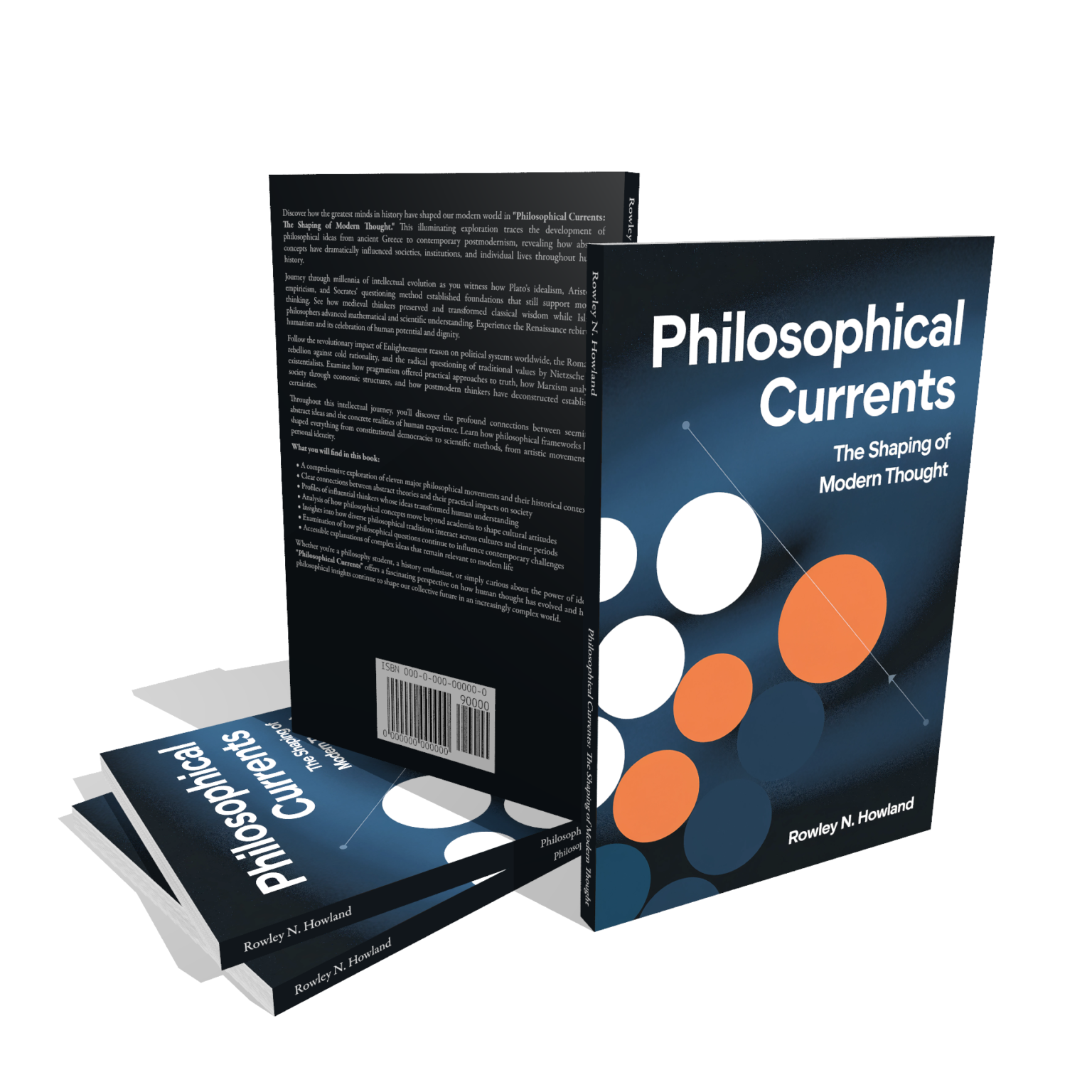Philosophical Currents Modern Thought Book Review – Complete Guide to Understanding Philosophy’s Impact on Today’s World

Philosophical Currents: The Shaping of Modern Thought transforms complex philosophical concepts into accessible insights that directly impact your understanding of contemporary society. If you’ve ever wondered how ancient ideas continue to shape modern ethics, governance, and personal decision-making, this comprehensive ebook provides the missing connections. Unlike dense academic texts, this guide bridges the gap between abstract theories and real-world applications, making philosophical currents relevant to your daily life. The book traces eleven major philosophical movements from ancient Greece to postmodern times, revealing how these intellectual currents continue to influence everything from political systems to personal identity formation.
This meticulously structured exploration profiles influential thinkers whose transformative ideas shaped human understanding across centuries. You’ll discover how Plato’s theories connect to modern educational systems, how Enlightenment concepts influence contemporary governance, and how existentialist ideas inform today’s discussions about authenticity and meaning. The book emphasizes practical applications rather than purely theoretical debates, making it an essential resource for anyone seeking to understand philosophy’s ongoing relevance to modern challenges.
What You’ll Discover
- Master Philosophical Evolution: Trace the development of key philosophical movements from ancient Greece through contemporary thought, understanding how each era’s ideas respond to their societal context
- Learn Practical Applications: Discover how philosophical frameworks directly influence modern ethics, governance, education, and personal decision-making in your daily life
- Understand Cultural Connections: Explore how diverse philosophical traditions interact across cultures and time periods, revealing universal human questions and responses
- Overcome Complex Concepts: Access clear explanations of intricate philosophical ideas that make abstract theories comprehensible and immediately applicable
- Develop Critical Thinking Skills: Master analytical frameworks that enhance your ability to navigate complex contemporary challenges with greater wisdom and perspective
- Transform Your Worldview: Gain insights into how philosophical currents shape your beliefs, values, and understanding of justice, freedom, authenticity, and happiness
Why This Book Matters
Modern society faces unprecedented challenges that require deep philosophical understanding to navigate effectively. This book provides essential context for addressing climate change, artificial intelligence ethics, social justice issues, and global conflicts by revealing their philosophical foundations. You’ll recognize how contemporary debates about technology, identity, and meaning reflect centuries-old philosophical questions, giving you access to proven frameworks for thoughtful analysis. The work emphasizes how understanding philosophical currents prevents us from repeating historical mistakes while enriching our collective deliberations about complex social issues.
Rather than treating philosophy as abstract academic exercise, this guide demonstrates its immediate practical value for personal development, professional decision-making, and civic engagement. You’ll gain conceptual tools that enhance critical thinking, improve communication across differences, and provide resources for addressing moral dilemmas in both personal and professional contexts. The book’s approach makes sophisticated philosophical concepts accessible without oversimplification, encouraging active engagement with different perspectives rather than passive memorization of positions.
Key Features
This comprehensive ebook spans 11 detailed chapters covering major philosophical movements and their contemporary relevance. Available as an instant digital download, you’ll receive immediate access to meticulously organized content, clear explanations of complex theories, and practical applications for everyday life. The format allows for easy reading on any device, with structured sections that can be referenced repeatedly. Also available as audiobook on Google Play Books and Spotify for convenient listening during commutes or workouts, making philosophical learning accessible wherever you are.
Frequently Asked Questions
How do philosophical currents actually shape modern society and decision-making?
Philosophical currents function as invisible architecture structuring our institutions, beliefs, and practices. This book reveals how Enlightenment concepts influence democratic governance, how scientific methodologies trace to philosophical frameworks, and how existentialist ideas inform contemporary discussions about authenticity and personal identity. You’ll understand how abstract ideas materialize in concrete realities affecting politics, education, healthcare, and technology.
Why is understanding philosophical evolution important for today’s complex challenges?
Contemporary issues like climate change, artificial intelligence, and social justice represent new manifestations of perennial philosophical questions. The book demonstrates how recognizing these connections provides access to centuries of careful thinking, prevents intellectual wheel-reinventing, and enables more nuanced dialogue across different perspectives. Understanding philosophical currents enriches deliberations about multifaceted modern challenges.
What makes this philosophy book different from dense academic texts on the market?
Unlike purely theoretical works, this book emphasizes practical impact and accessibility without sacrificing depth. It traces how ideas flow across disciplinary boundaries, incorporates diverse voices including marginalized perspectives, and focuses on philosophy as ongoing questioning rather than finalized positions. The approach encourages active engagement with concepts that directly apply to contemporary life and decision-making.
Get Your Copy Today
Transform your understanding of modern thought with this comprehensive guide to philosophical currents. Available for instant download at just $6.99, this ebook provides exceptional value compared to expensive philosophy courses or academic texts. Also available as audiobook on Google Play Books and Spotify for flexible learning opportunities. Purchase your copy through all major ebook retailers including Apple Books, Barnes & Noble, and Kobo to begin deepening your philosophical understanding and critical thinking skills today.
Watch the Video Review

